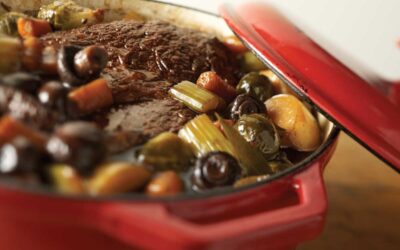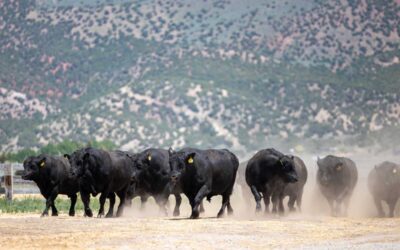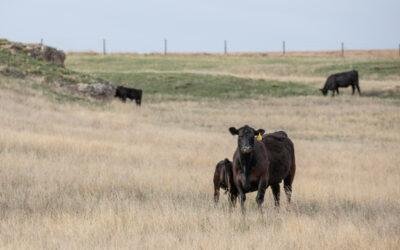
Food morality on the ranch
May 25, 2011
I love airports.
I know most people hate them, but I like showing up early for a flight so I can spend a few extra minutes there. I love the people watching; I love the diversity; I enjoy the hustle and bustle. Mostly, I love that people are just a little more friendly than normal when they know we all have a common bond: We’re all going somewhere to do something other than our daily routine. An airport lends itself to the world’s easiest conversation starting ice breaker: “So, where ya heading?”
I strike up a lot of random conversations in boarding lines, airport bars and with new seat buddies. Not surprisingly, many of these conversations end up on an agriculturally related topic as soon as my new friend and I start exchanging career information.
Some people are enamored with the idea of actually growing up on a farm/ranch and love looking at photos of my parent’s cattle on my cell phone; others tell me about their cherished memories of visiting grandpa’s old farm as kids. Sometimes the conversations gets in-depth enough that we chat about concerns we often hear: organic v. traditional product, grass-fed v. grain-fed, hormones, antibiotic use, humane treatment, etc.
I always start those conversations by first asking, “Why are you concerned about that?” “Why is feeding your family grass-fed beef important to you?” “What do you consider a ”factory farm,” and why is that bad?” With those thoughts in mind, it’s almost always easy for me to empathize and understand their point of view, whether I agree with it or not. That makes for a spirited discussion and interesting information sharing. That’s fun.
The only time I have struggled with these kinds of conversations is when someone responds with, “I just don’t think it’s right.” That’s usually a response that signals to me it’s time to ease into another aspect of the topic. We all know that religion and morality always top the list of taboo topics to discuss. I generally live by a “to each his own” mentality when it comes to personal conviction, so this is a debate I seldom like to enter into.
But Kevin Murphy, the founder and owner of Food-Chain Communications LLC, doesn’t shy away from this topic. In fact, he eagerly speaks about the “food morality” movement and what it means to those in production agriculture:
My favorite quote from Kevin came from his presentation at our Feeding Quality Forum last year: “You have to be able to answer one simple question: is what you do right? And can you explain why? If you can’t explain what you do and why you do it, morally, you will not win.”
What do you think? Is this a topic you’re willing and ready to discuss?
You may also like
Seasonal Demand Shifts Carcass Values
January often presents the lowest beef demand, while February likely vies second. Also, we see a shift in consumer preference away from holiday middle meat roasts toward end cuts for “comfort food” meals.
Working in Balance
Cattlemen have a responsibility to look critically at their own herd, determine the areas that warrant improvement, and select animals accordingly. Stockmen bring immense value by objectively evaluating phenotypes, regardless of what the numbers say, and setting individual breeding objectives.
Price Speaks Volumes
While the tightest fed cattle supplies in the cycle are projected this year, consumer demand has issued directional support that tight supplies do not necessitate narrowing of price differentiation for quality.



